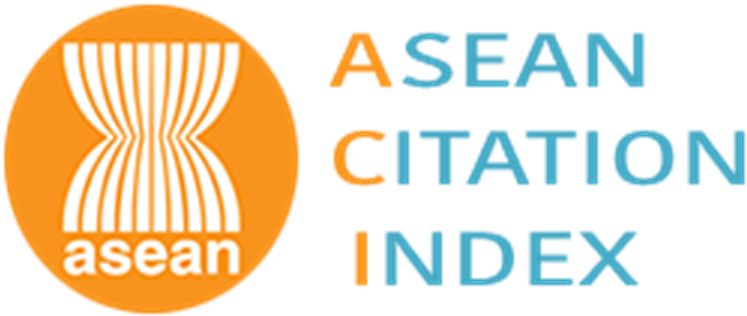รูปแบบการบริหารจัดการโรงไฟฟ้าชีวมวลในประเทศไทย
The Biomass Power Plant Management Model in Thailand
Abstract
การวิจัยครั้งนี้มีวัตถุประสงค์ เพื่อศึกษาองค์ประกอบที่มีผลต่อการบริหารจัดการโรงไฟฟ้าชีวมวลในประเทศไทย สร้างรูปแบบการบริหารจัดการโรงไฟฟ้าชีวมวลในประเทศไทย จัดทำคู่มือการบริหารจัดการโรงไฟฟ้าชีวมวลในประเทศไทย โดยใช้การวิจัยแบบผสมผสาน เครื่องมือที่ใช้ในการวิจัยประกอบด้วย แบบสัมภาษณ์กึ่งโครงสร้างและแบบสอบถามปลายปิด กระบวณการวิจัยประกอบด้วย การสัมภาษณ์เชิงลึกผู้เชี่ยวชาญจำนวนอย่างน้อย 9 คน และการสนทนากลุ่มประชาพิเคราะห์จากผู้ทรงคุณวุฒิ จำนวน 12 คน สถิติที่ใช้ในการวิเคราะห์ข้อมูลประกอบด้วย ค่าไอเกน ค่าร้อยละของความแปรปรวนสะสม ค่าน้ำหนักองค์ประกอบ ผลการวิจัยพบว่า องค์ประกอบที่มีผลต่อการบริหารจัดการโรงไฟฟ้าชีวมวลในประเทศไทยมี 10 องค์ประกอบ ดังนี้ (1) ด้านการบริหารจัดการองค์กร (2) ด้านการบริหารจัดการเครื่องจักร อุปกรณ์และเทคโนโลยีการผลิต (3) ด้านการจัดการกระบวนการผลิตและดำเนินการ (4) ด้านการบริหารจัดการงานซ่อมบำรุง (5) ด้านการบริหารจัดการบุคลากร (6) ด้านการบริหารจัดการเชื้อเพลิง (7) ด้านการบริหารจัดการสิ่งแวดล้อม (8) ด้านระบบบัญชีและการเงิน (9) ด้านการสนับสนุนจากภาครัฐ (10) ด้านผลลัพธ์ทางธุรกิจ ผู้วิจัยได้จัดทำคู่มือการบริหารจัดการโรงไฟฟ้าชีวมวล ประกอบด้วยแนวทางการบริหาร ขั้นตอนและแนวทางการนำคู่มือไปใช้งาน
The objectives of this research are to study the factors that affect the management of biomass power plants in Thailand, construct a management model for biomass power plants in Thailand, and establish a manual for managing biomass power plants in Thailand. With the mixed model research design, the research instruments were composed of semi-structured interview form and closed-ended questionnaire, data collection consisted of In-depth interviews with at least 9 experts and 12 experts in the public discussion groups. The statistics used for data analysis consisted of Eigen value, the percentage of cumulative variances, and element weight. The results revealed that elements that affect the management of biomass power plants in Thailand included 10 elements as follows: 1) organization management, 2) machinery management, equipment, and production technology, 3) production process management and operation, 4) maintenance management, 5) personnel management, 6) fuel management, 7) environmental management, 8) accounting and financial systems, 9) support from the government, and 10) business results. The researcher has created a manual for managing biomass power plants consisting of management guidelines, steps, and guidelines for using the manual.
Keywords
[1] Energy News Center. (2017, May 26). Energy Situation. [Online]. Available: http://q12.gallup.com/
[2] Electricity Generating Authority of Thailand. (2017, December 6). Power Plant Operation and Maintenance. [Online]. Available: http:// www.egat.co.th/index.php?option=com_ content&view=article&id=2955:20190319- art01&catid=49&Itemid=251
[3] Ministry of Energy. (2015, February 18). Alternative Energy Development Plan (AEDP2015). [Online]. Available: www.dede. go.th/ewt_news.php?nid=42195
[4] Department of Health and the Department of Disease Control, Ministry of Public Health. (2016, November 15) National Prevention Strategy. [Online]. Available: https://www. anamai.moph.go.th/ewt_dl_link.php?nid=9901
[5] Royal Academy. (2011, June 28). The Royal Institute of Dictionary 2011. [Online]. Available: http:// ripub.royin.go.th/dictionary.asp [6] P. Parichat, “Change Management,” Gotoknow Management center, Bangkok, Thailand, 2012 (in Thai).
[7] J. W. Creswell and V. L. P. Clark, Designing and Conducting Mixed Methods Research, 2nd ed. SAGE Publications, Inc., 2010.
[8] K. Vanichbuncha, SPSS for Windows, 6rd ed., Bangkok: Thammasan Co., 2007, pp. 135–143 (in Thai).
[9] R. Jr. Waterman, T. Peters, and J. R. Phillips, (1980) “Structure Is Not Organization” in Business Horizons, 23(3): 14-26. [Online]. Available: http:// tompeters.com/docs/Structure_Is_Not_ Organization.pdf
[10] S. Thamrongthanyawong, Public policy: Concept Analysis Process, 9th ed. Bangkok: Sena Tham Printing House, 2015.
[11] M. S. Güney and K. Kaygusuz, “Hydrokinetic Energy Conversion Systems: A Technology Status Review,” Renewable and Sustainable Energy Reviews, vol. 14, pp. 2996–3004, 2010.
[12] S. Sooksisen, Public Participation in the Community Energy Planning. Department of Management Science Business Administration, Sukhothai Thammathirat University, 2007.
[13] J. R. Walker, Introduction to Hospitality Management, 3rd ed. Upper saddle River, NJ: Prentice Hall, 2010.
[14] A. Ostervalder and E. Pinjor, Business Model Generation. Winyu Kinghirunwattana Translator. Bangkok, Velern Printing House, 2014.
DOI: 10.14416/j.kmutnb.2021.05.038
ISSN: 2985-2145





